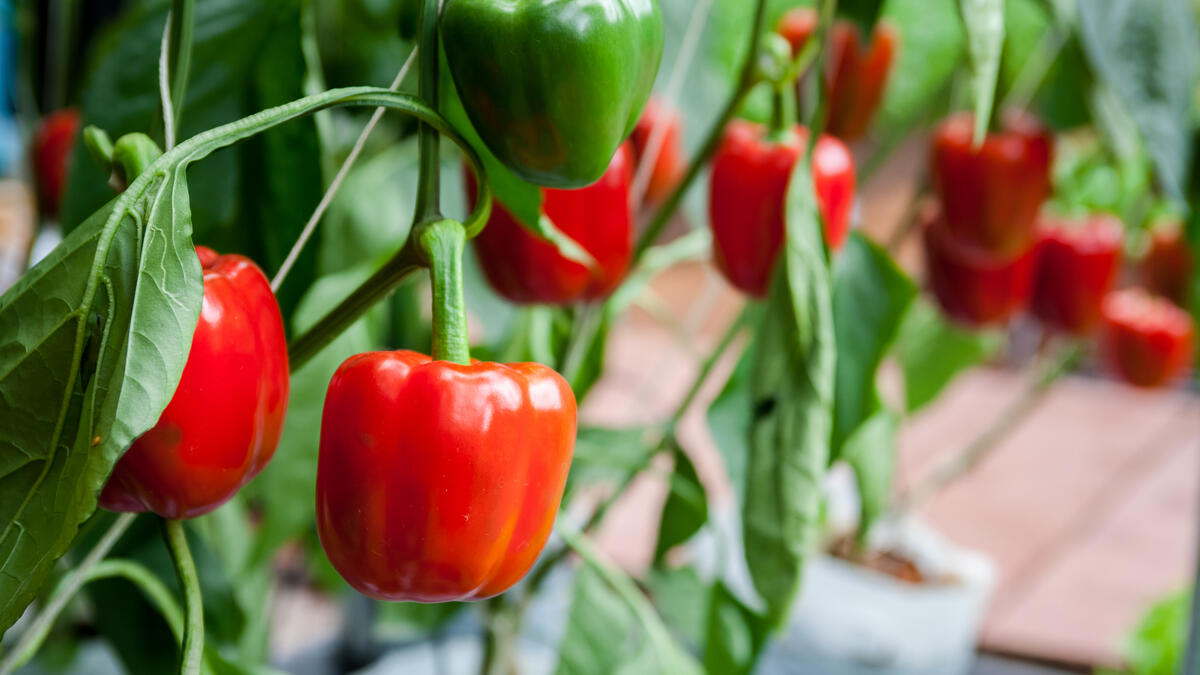New ASU incubator provides support, funding for sustainable food-system ventures

Arizona State University has started a new entrepreneurship initiative called Cultivate PHX to grow innovation in sustainable food systems and agriculture.
The Cultivate PHX Agrifood Tech Incubator will provide seed funding, mentorship, collaboration, coworking space and other support to founders whose ventures are addressing the life cycle of food or looking to pilot new technology in food systems.
The incubator program is a partnership between ASU’s J. Orin Edson Entrepreneurship + Innovation Institute, the Rob and Melani Walton Sustainability Solutions Service at ASU and the city of Phoenix.
Cultivate PHX is the third incubator in Edson E+I’s new model. The other two are Peoria Forward and the Chandler Endeavor Venture Innovation Incubator.
Typically, incubators require entrepreneurs to apply; they may or may not be selected, and then must do homework or go through endless rounds of pitches. ASU’s incubators invite any entrepreneur in the community to join the free program simply by registering. Then, they can collaborate with peers and get expert advice.
Sign up here
Use this link to register for Cultivate PHX: Agrifood Tech Incubator.
Kristin Slice, director of community entrepreneurship for Edson E+I, said Cultivate PHX is addressing a specific gap of sustainability ventures in the entrepreneurial ecosystem, such as vertical gardening, water conservation, aquaponics, composting or food-distribution systems.
“How do we make that whole process more sustainable from the jump and use technology to create those innovations at scale?” she said.
“This isn’t a step-by-step ‘how to build your venture.’ There are many partners that already do that. We’re looking at, ‘How do you add innovation to accelerate your venture?’ Big problems need big resources.”
Slice said the incubator will help the founders deal with a problem that’s common in sustainability ventures: converting interest into investment.
“Everybody loves sustainability. Few people will look at you as founders and not say, ‘We need that.’ But it’s moving on to get the funding,” she told participants.
The founders will pitch for $300,000 in seed money. The goal is to get several ventures to a six-month pilot stage, during which they can test their go-to-market strategy.
Last week, the Edson E+I held the first Cultivate PHX event, a forum in which the founders learned how to refine their “unique value proposition” — a succinct pitch explaining why their venture is worthy of funding.
The event drew several founders of food-system ventures, as well as organizations that could support or partner with them, such as Local First Arizona, St. Vincent de Paul and Hustle PHX.
As the founders practiced their value proposition pitches, their peers gave feedback.
Kyle Weiler, founder of Desert Kitchen Gardens, a venture that grows microgreens for restaurants, said it was tricky to get everything into one sentence that’s easily delivered.
“We’re providing a superior product that’s locally grown that reduces waste,” he said.
“And we grow indoors in a controlled environment,” he quickly added.
Sara Anderson is the founder of Proxsea, a venture that creates food experiences.
“My service is to help consumers who want to find a healthier relationship with food practice either through eating and learning or through cooking, mostly through events and activations and microevents,” she said. “I partner with farms and a dietitian to produce a meal that teaches about seasonal food and cooking and nutrition.
“If you have the information in front of you while you’re eating it, there’s a higher probability of learning it and digesting it — pun intended.”
Anderson said the hardest part of pitching the value proposition is feeling put on the spot and not knowing who the audience is, consumer or potential funder.
In addition to the monthly forums — which will focus on subjects such as raising capital and finding customers — incubator participants also get access to a digital platform that includes monthly self-guided courses and discussion forums to exchange ideas, ask for feedback and share resources.
Alicia Marseille, senior director of the Rob and Melani Walton Sustainability Solutions Service, is one of the organizers of Cultivate PHX. The service works with public and private partners, both inside ASU and externally, on sustainability issues.
Marseille told the founders at the forum last week that their pitches must constantly evolve as their ventures progress. In 2006, she founded an international business, working with a cooperative of farmers in Haiti to export coffee. She wanted to support economic development in Haiti through social entrepreneurship.
“So when I started out with my value proposition, people were like, ‘So you’re a nonprofit?’ Oh no, I’m not saying this right. They’re not understanding.
“If you’re buying this coffee, you’re supporting potentially 25,000 farmers in Haiti and an exponential amount of families.’ ”
Innovation in food systems is critically important right now, Marseille said.
“We’re facing some major challenges. Forty-two percent of city of Phoenix residents live in a food desert — they have to go more than a mile to access healthy food options.
“Our climate is drastically changing and changing the agrifood industry. How can what you’re doing solve that problem?”
Top image from iStock
More Environment and sustainability

'Earth Day Amplified' promotes power of collective action
Everybody loves the concept of sustainability. They want to do their part, and the chance to say they’ve contributed to the well-being our of planet.But what does that actually mean?Arizona State…

Rethinking Water West conference explores sustainable solutions
How do you secure a future with clean, affordable water for fast-growing populations in places that are contending with unending drought, rising heat and a lot of outdated water supply infrastructure…
Meet the young students who designed an ocean-cleaning robot
A classroom in the middle of the Sonoran Desert might be the last place you’d expect to find ocean research — but that’s exactly what’s happening at Harvest Preparatory Academy in Yuma, Arizona.…

